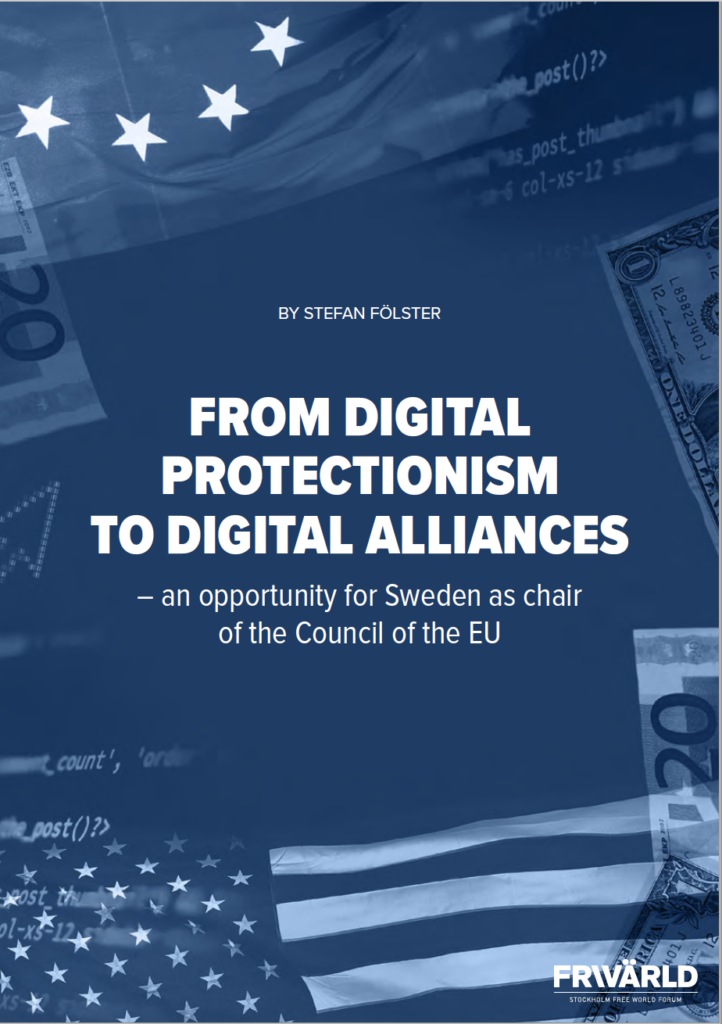★The EU risks edging toward digital protectionism by means that, according to most studies, could undermine economic growth and security in Europe.
★Digital protectionism jeopardizes Europe’s advantage in mainstream industries that rely on edge computing without increasing competition in large-scale digital platforms.
★The EU and America share a legitimate need to secure supply chains and strive for technological leadership. These aims are weakened by indiscriminate trade impediments but could be strengthened by carefully crafted alliances.
★As chair of the Council of the EU during the first half of 2023, Sweden should: (a) propagate an evidence-based approach to the EU´s digital agenda; (b) revitalize high-level discussion such as the US-European Trade and Technology Council (TTC); and (c) initiate talks on operative cooperation on cyber security, common research, and common trade stances toward countries such as China.
★A more ambitious, operative Atlantic initiative would be the negotiation of a “EUKUS”, a defense-oriented research alliance between the EU, the US and the UK. A little-noted second “pillar” of AUKUS, the defense deal between Australia, the US and the UK, entails collaboration on advanced technologies, such as artificial intelligence, quantum systems, and hypersonic missiles.
